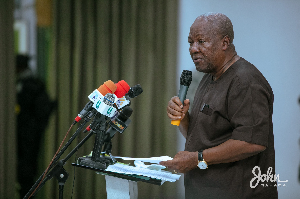Some traders are urging the government to amend the Value Added Tax (VAT) Act to facilitate its smoother implementation across the country.
According to the Ghana Revenue Authority (GRA), the VAT Act mandates a value-added tax on the supply of goods and services within the country, excluding exempt items, as well as on the importation of goods and services.
The VAT is charged on taxable supplies made by taxable persons during their taxable activities, and on imported goods under the laws and regulations applicable to customs duties and other import taxes, with necessary modifications.
Traders acknowledge the legal backing of the VAT Act and express their willingness to comply. However, they argue that the current implementation poses significant challenges and casts traders in a negative light among consumers.
A concerned trader, who preferred to remain anonymous, highlighted in an exclusive interview that the VAT implementation undermines business growth efforts.
He criticized the GRA's aggressive enforcement tactics, which deter business diversification.
The trader emphasized specific difficulties in the hardware distribution sector, where the VAT implementation resembles double taxation.
Explaining the situation of double taxation, he added that the retailer goes to the factory and pays all the levies and the VAT, which he complies with without any problem and adds to the cost of the item.
Then, he is required by the current law to add the same levies and VAT again for the consumer to pay.
The consumer can choose to go to the non-registered retailer or the 4% retailer or the 18.5% retailer, and all rational consumers will like to buy at a low cost.
He explained that in local parlance, VAT is referred to as "Fabi Tuudo Ma Aban," meaning "add to the price for the government."
He questioned why businesses should face penalties for failing to collect VAT when they are unable to pass it on to consumers, who often opt to buy from VAT-unregistered distributors.
He pointed out that many businesses end up using their profits to pay VAT because consumers prefer to purchase from vendors who do not charge VAT.
The GRA's compliance measures, involving armed police and camera crews, exacerbate the situation, making business owners feel criminalized.
The trader proposed that VAT should be incorporated into the factory price of goods, thereby eliminating the option for consumers to buy from unregistered dealers.
This would ensure uniform pricing across all distributors and prevent VAT avoidance.
He also highlighted the cumbersome nature of VAT calculations, which discourages compliance.
For instance, a commodity sold at GHS 199 inclusive of VAT at the factory level can be sold at GHS 124 inclusive of VAT by distributors with a turnover below GHS 500,000, and at GHS 142 by those above the threshold.
This discrepancy allows buyers to choose cheaper options, often from unregistered dealers.
The trader suggested that incorporating VAT into the product price for all distributors to sell at the same price would resolve these issues.
He cited the example of varying cement prices as a result of the current VAT implementation system.
By addressing these challenges, traders believe that the VAT system can be made more efficient and equitable, benefiting both businesses and the economy at large.
- Ghana loses $1.4billion yearly from illicit financial flows – Tax Justice Network Africa
- There was no need to suspend the collection of road tolls – Minority condemns government
- I will harmonise our import duties with Togo's if I become President – Dr. Bawumia
- Assemblies sidestepped in petroleum-funded projects - PIAC report
- Majority accuses minority of hypocrisy over rejection of $350m tax exemptions
- Read all related articles













